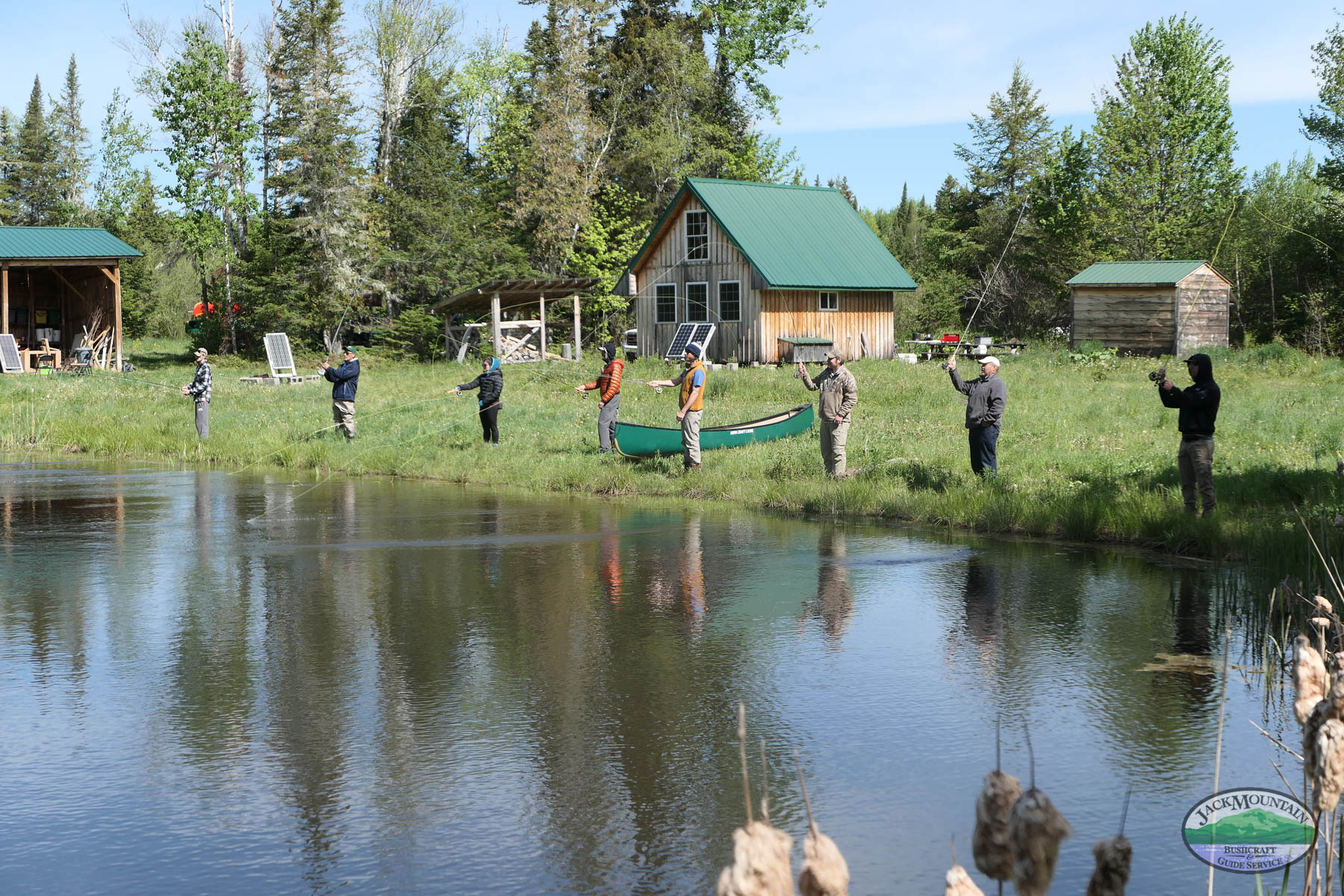Spring is right around the corner, and we’re looking forward to an exciting month on the remote rivers of northern Maine in May on the Wilderness Canoe Expedition Semester. We get a lot of questions about recommended fishing gear for our spring programs, so today I want to address this.
While we do have fly rods that people can use to learn to cast in our pond, we don’t loan fishing gear to people to go out and use. So if you want to fish while on the trail, you’ll have to pick up the gear yourself.
There are two types of fishing gear you might consider getting: a spinning rod and a fly rod. Spinning rods have line that is weightless, and you use the rod to cast the terminal tackle (lure, bait, etc.) that has weight. There is not a lot to casting a spinning rod, and they are available everywhere.
Fly Rods use a weighted line to cast weightless terminal tackle (fly). There is a lot that goes into learning to cast a fly well. You can buy these at the Presque Isle Walmart, but you might want to get a good one from a reputable source, which is why I’m posting this in mid-March. Timing, technique, and the smooth application of power to a hard stop are all part of the process.
A 5-Weight, 9-Foot, Rod With Weight Forward, Floating Line
Paul Sveum and I have talked about this, and we decided the best overall fly fishing rod for the water and fish we have in northern Maine is a 5-weight, 9-foot, rod with weight forward, floating line. This will allow you to fish for small stream trout, but still be large enough if you wanted to go out for smallmouth bass or other game fish. The thing about making a recommendation like this is that if you asked 100 guides, you’d likely get at least 97 different answers. But this one has served me well over the years. If fly fishing becomes your sport, in a few years you’ll probably have a handful of rods for specific conditions, but if this is your first rod, it should give you what you need to catch some fish.
Fly fishing can become an expensive hobby, so it’s good to keep in mind that the fish don’t care what brand or rod you use. That being said, if you spend a little bit more you often get a rod that will grown with you as your skills develop. We recommend getting an outfit from either Orvis or LL Bean, where they match the reel and line to the rod for you and you purchase it as a package.
In the field I carry both a fly rod and a spinning rod, and my old Penn spinning reel that I bought in 1982 is now significantly older than some of the students on courses.
We are fortunate to have both the casting pond and frontage on the Aroostook River, so if you’re looking to perfect your casting and fishing skills this year, we can make it happen.
I will be following up with some good resources to learn more about fishing in the coming days.








